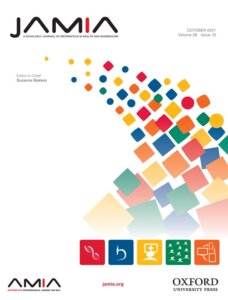
In a new NIH Collaboratory study, 20 NIH Collaboratory Trials responded to a survey about challenges encountered when using the electronic health record (EHR) for pragmatic clinical research. The goal of the study was to elucidate challenges and develop solutions—or prerequisites for pragmatic research—to enable healthcare system leaders, policy makers, and EHR designers to improve the national capacity for generating real-world evidence.
The article was published in the Journal of American Medical Informatics Association (JAMIA).
The challenges identified by the projects fell into 6 broad themes, including inadequate collection of patient-centered data, lack of functionality for structured data collection, lack of standardization, lack of resources to support customization, difficulties aggregating data from multiple sites, and difficult and inefficient access to EHR data.
Researchers from the NIH Collaboratory’s EHR Core and colleagues from the Patient-Centered Outcomes and the Health Care Systems Interactions Core Working Groups discussed the issues and iterated possible solutions. The authors developed the following prerequisites for the conduct of pragmatic research:
- Integrate collection of patient-centered data into EHR systems
- Facilitate structured research data collection by leveraging standard EHR functions, usable interfaces, and standard workflows
- Support creation of high-quality research data by using standards
- Ensure adequate IT staff to support embedded research
- Create aggregate, multidata type resources for multisite trials
- Create reusable and automated queries
The authors argue for the ability to tailor EHR systems to enable the collection of patient-centered outcomes and the extraction of high-quality, standardized data. Although the primary uses of the data are for clinical care and billing, high-quality data from the EHR also have the potential to improve clinical care and population health by providing reliable evidence and to support pragmatic research and learning within and across healthcare systems.
This work was supported within the National Institutes of Health (NIH) Health Care Systems Research Collaboratory by the NIH Common Fund through cooperative agreement U24AT009676 from the Office of Strategic Coordination within the Office of the NIH Director. This work was also supported by the NIH through the NIH HEAL Initiative under award number U24AT010961.





 The Helping to End Addiction Long-Term Initiative℠, or NIH HEAL Initiative℠, has created common data elements (CDEs) to facilitate cross-study comparisons for pain, improve interoperability of findings for patient-reported outcomes, and compare results across trials. The core CDEs were published recently in the
The Helping to End Addiction Long-Term Initiative℠, or NIH HEAL Initiative℠, has created common data elements (CDEs) to facilitate cross-study comparisons for pain, improve interoperability of findings for patient-reported outcomes, and compare results across trials. The core CDEs were published recently in the 


